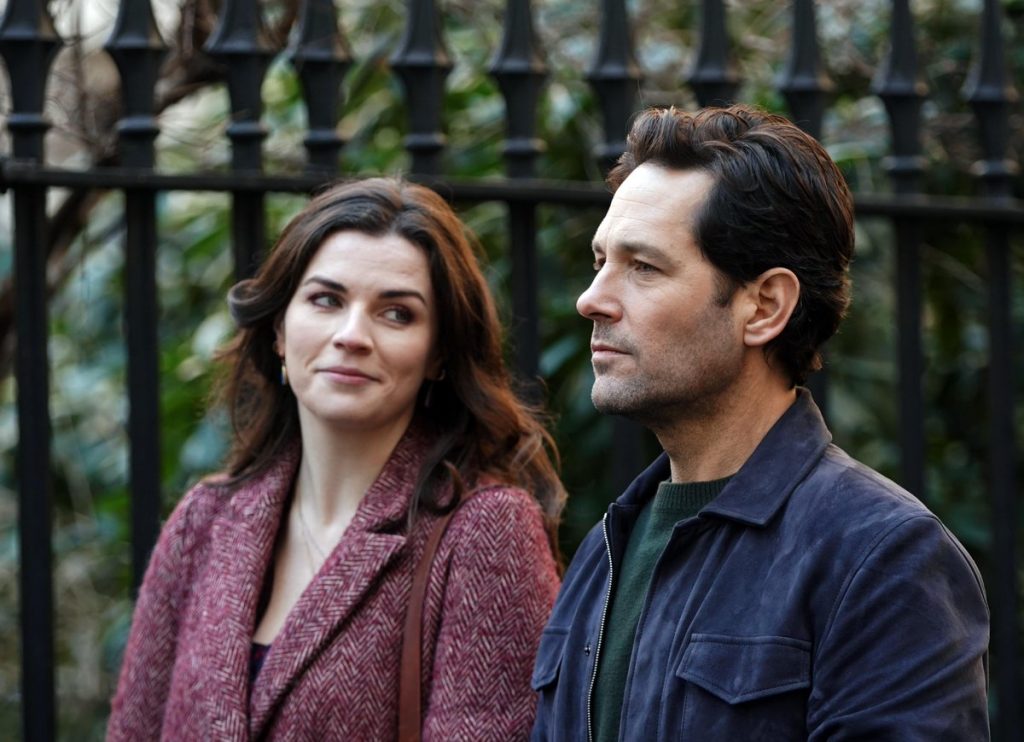Living with Yourself starts with a plastic-wrapped Paul Rudd clawing out of the earth, clad in nothing but his diaper. Still confused (and scared), he spends the next six hours trekking to his home, where he finds that there is a man in bed with his wife, and that man is none other than himself.
Miles (Paul Rudd) is an unremarkable copywriter, whose passion has long since petered out, in both his work and his marriage. When a co-worker recommends a spa that will rejuvenate his life, Miles secretly draws the required $50,000 out of his joint savings account and signs up for the treatment. The catch is, the spa is actually a front for an illegal cloning operation that kills off the original person, with the clone taking the original’s place. The Original Miles and the New Miles soon come up with an arrangement, but as time passes, things start to break down.
Paul Rudd is the main attraction of the series, and deservedly so.
There are subtle nuances between how he portrays the two characters; Original Miles is often subdued and tired, whereas New Miles is more energetic and positive. Aisling Bea is also solid as Kate, Miles’ wife. As the series progresses, we get more of a look into their relationship, and how things thawed over the years.

Living with Yourself doesn’t always land its jokes, but it’s sense of humor is unique, and the synth-like soundtrack also helps its stand out.
There’s a good part of the series that’s a metaphor for fighting with yourself. New Miles is noticeably better in almost every area, and at one point, Kate even grows warm to him.
He comes up with an emotional ad campaign for a regional telecom company that ends up getting nominated for an award, which drives Original Miles up the wall. He also gets jealous of how sociable New Miles is with guests and around his wife. The show also makes a good point by emphasizing how marriage often works, with the things that annoy you about your partner being also linked to the things you love about him.
Clocking in at 21–35 minutes per episode, Living With Yourself’s many plot threads start to become unwieldy at the halfway point. At eight episodes, the series feels slightly stuffed: maybe a few more episodes would have allowed for more breathing room. Still, the series does a good job with its many cliffhangers. Creator and writer Timothy Greenberg constantly plays with time in a non-linear way, and while that can sometimes slow down the pacing, it balances the story of the two Mileses well enough.
The show ends abruptly, but there is a real sense of closure. Miles and New Miles begin to finally understand one another, and they learn about some good news that leaves the door open for a new beginning.
Will there be another season? There isn’t much need for it, but Paul Rudd could make it work, as long as the writers come up with new situations to explore. As it stands, this is a philosophical experiment disguised as a comedy, working in large part due to the solid cast.